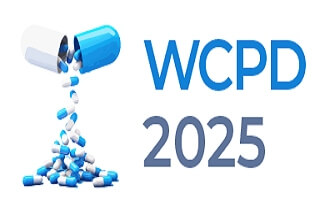WCPD 2025

University of Kashan, Iran
Abstract:
In general, to micro and nanosizing a drug through supercritical fluids technology, it is necessary to obtain its solubility behavior. The present study aimed to determine the solubility of tramadol hydrochloride (T-HCl) in supercritical carbon dioxide (SC-CO2). The solubility measurements were conducted at various operating temperatures and pressures, ranging from 308 to 338 K and 100 to 270 bar, respectively. The maximum solubility of T-HCl was recorded as 1.384 × 10-4 at a temperature of 338 K and a pressure of 270 bar. Moreover, the experimental solubility data was subjected to modeling using seven semi-empirical correlations, such as Sodeifian model. These correlations aimed to predict the solubility behavior accurately. Subsequently, the enthalpies associated with T-HCl/SC-CO2 interactions, including vaporization, total, and solvation enthalpies, were calculated based on the Bartle et al., Kumar-Johnston, and Chrastil correlations. The values obtained were 60.5231 kJ/mol, 46.0750 kJ/mol (Kumar-Johnston), 38.5474 kJ/mol (Chrastil), -14.4481 kJ/mol (derived from Kumar-Johnston and Bartle et al.,), and -21.9757 kJ/mol (via Chrastil and Bartle et al.,), respectively. Furthermore, the solubility of T-HCl was modeled using two distinct Equations of State (EoSs): the simplified perturbed chain statistical associating fluid theory (sPC-SAFT) and the Soave-Redlich-Kwong (SRK) EoSs, both incorporating the van der Waals mixing rule type II. The semi-empirical correlations and the EoSs were meticulously fitted to the experimental solubility data and evaluated using the Average Absolute Relative Deviation (AARD) parameter. The results demonstrated a notable agreement of the sPC-SAFT EoS with the experimental solubility data, achieving an AARD value of 10.18%.
Biography:
Prof. Dr. Gholamhossein Sodeifian (1971) graduated in chemical engineering (M.S) from University of Tehran, in 1997 and received his doctorate (Ph.D), in polymer Engineering from Tarbiat Modares University, Tehran, in 2002. After that, he has worked till now as a chemical engineering professor, at University of Kashan. His researches focuses on extraction of essential and seed oils, solubility measurement of solid drugs, micro and nano-particle formation of pharmaceutical materials in supercritical carbon dioxide (SC-CO2), and other new techniques. He has developed for the first time in the world a new and efficient technique for nanoparticle formation, i.e., US-RESOLV. He has published more than 100 ISI scientific papers with 5 inventions and 9 books in Persian language. Also, professor Sodeifian is named in the world's top 2% of scientists list in 2020, 2021, 2022 and 2023.
